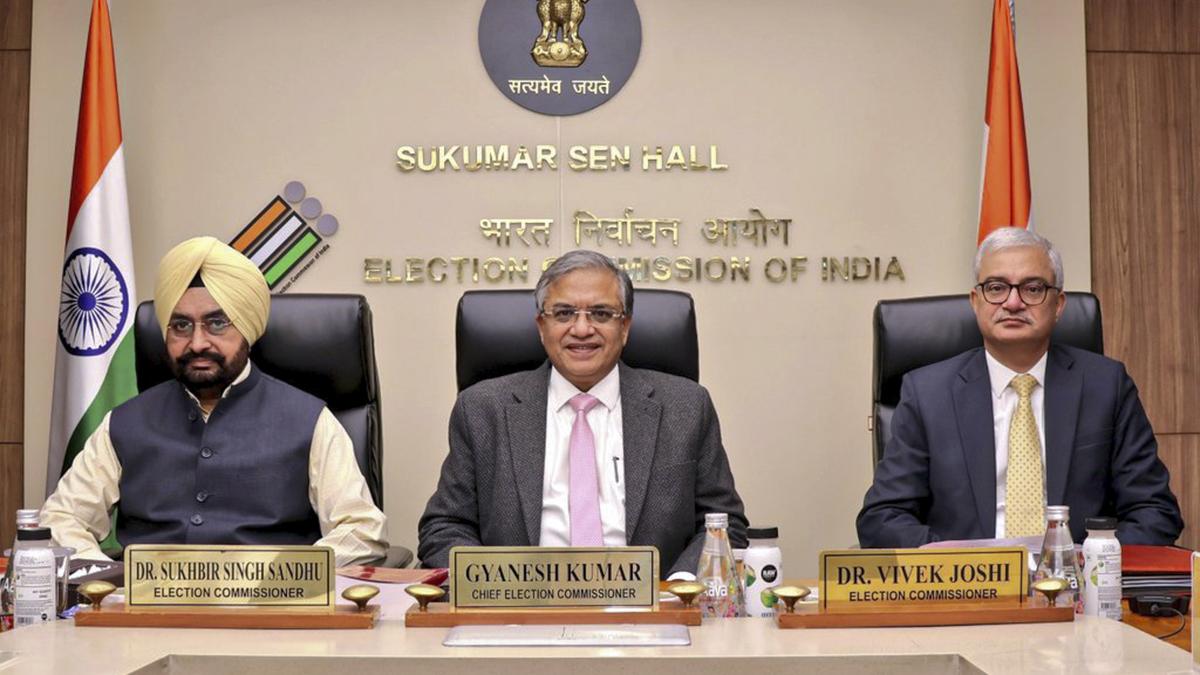The Madras High Court has directed the Tamil Nadu forest department to conduct training programmes for all its field level officers on the nuances involved in investigating wildlife offences with greater stress on collection of digital evidence.
A special Division Bench of Justices N. Sathish Kumar and D. Bharatha Chakravarthy issued the direction pursuant to a report filed by a Special Investigation Team (SIT) constituted by the court to probe elephant poaching cases.
The SIT, in its report, had stated that almost all wildlife offences get reported late due to the nature of the terrain where such offences occur and hence, crucial evidence, required to prosecute the offenders, gets lost by the time the forest authorities reach the scene of crime. The SIT further stated that the forest officials were not in the habit of maintaining a serially numbered case diary and that, by and large, they rely solely on the confession of the accused to prosecute them instead of conducting a detailed field investigation to gather additional materials.
“In many cases, even photographs, with timeline, from the place of seizures are not taken though such an exercise can easily and conclusively prove the possession of elephant tusks or any other banned wildlife remains especiallly in view of the fact that mere possession itself is an offence” the report read.
The SIT also said: “In almost all cases, the confession of the accused involved in forest offences is recorded by an officer below the rank of Assistant Conservator of Forests, thereby making the confession inadmissible in evidence.”
It stressed on the importance of collection of scientific evidence since chances of direct evidence, such as eye witness, were remote in wildlife offences. “Unfortunately, the same has not been found done in most of the cases,” the SIT lamented.
Pointing out that the presumption of guilt lies with the accused in wildlife offences, thereby making them liable to prove their innocence instead of shifting the burden on the prosecution to prove their guilt, the SIT said: “Inspite of this, the accused get the benefit of doubt due to the lapses during initial phase of investigation by the forest officials.”
After perusing the report and hearing the views of amici curiae T. Mohan, Chevanan Mohan, Rahul Balaji and M. Santhanaraman, the judges directed Special Government Pleader (forests) T. Seenivasan to come up with a status report for framing a Standard Operating Procedure (SOP) to investigate forest offences.
While framing such an SOP, specific attention should be given to the provisions of Bharatiya Nagarik Suraksha Sanhita with respect to video recording of the scene of crime and also the seizures. The provisions of e-Sakshya Management Rules, 2025 should also be taken into account, the court said.
The judges said, the forest department officials could also take note of the Tamil Nadu Criminal Rules of Practice, 2025, which provides for immediate digital recording of the scene of crime and also that of all seizures and sharing the footage with a common platform through a mobile app. “The forest department shall also conduct necessary training programs for all its field level officers who carry out investigation in wildlife offences. Let a status report be filed in this regard on October 31, 2025,” the court order read.

 1 day ago
7
1 day ago
7










 English (US) ·
English (US) ·